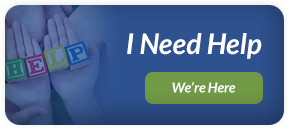Supportive Housing
 Supportive Housing is a permanent, affordable, independent housing service for adults with emotional/mental illness.
Supportive Housing is a permanent, affordable, independent housing service for adults with emotional/mental illness.
The following are the main components of this service:
- Assistance in locating quality housing
- Subsidized rent
- Assurance that the housing is furnished and appropriately equipped
- Linkage and coordination with community based services
- Tenant advocacy/Landlord relations
- Planned Transportation
Supportive Housing is for adults 18 years of age or older with an SPMI diagnosis who desire stable housing and supports.
Supportive Housing Tenants may have non-recipient roommates, such as minor or adult children, spouse, or domestic partner, with an expectation that they will contribute a proportional share of the monthly household expenses.
Participants contribute 30 percent of their income (SSI, SSD or other) toward rental costs, and will be responsible for their own utilities.
Criteria for acceptance:
- 18 years or older
- A designated serious mental illness with verification
- Displays no immediate likelihood of causing harm to self or others
- If on Medications, able to self-medicate
- Assist in the development and quarterly review of an Individualized Service Plan.
- Maintain face-to-face contacts, including a home visit as needed based on the support plan or emergent needs but at least once every three months.
- Provide income verification at least annually or if income changes.
- Assure tenant contribution toward the portion of the unit’s rent is limited to 30% of his or her income.
- If living with individuals over the age of 18 years old, the rent will be split, and the other individual will be responsible for their portion of the rent.
- If living with individuals under the age of 18 years old, all household income will be calculated into the 30% rental responsiblity.
- If Section 8 or other long-term housing subsidies are secured, be discharged from CHOICES' Supportive Housing Program.
Applications can be obtained by calling us at 716-285-5201, by calling the Niagara County Department of Mental Health at 716-439-7527, or by accessing the Niagara County Adult Single Point of Access (SPOA) application form here.
Supportive Housing is funded by the New York State Office of Mental Health. For more information, please contact 716.285.3403 x. 2275.
By The Numbers...
In 2024, Community Missions provided:
• 12,441 nights of shelter
• 144,441 meals
• 4,379 individuals with clothing
• 8,071 care days in Youth Services
• 55,083 care days in Recovery Services
• 69,290 care days in Housing Services
• 496 reflections & resources for Faith Development







 Community Missions of Niagara Frontier, Inc.
Community Missions of Niagara Frontier, Inc.
